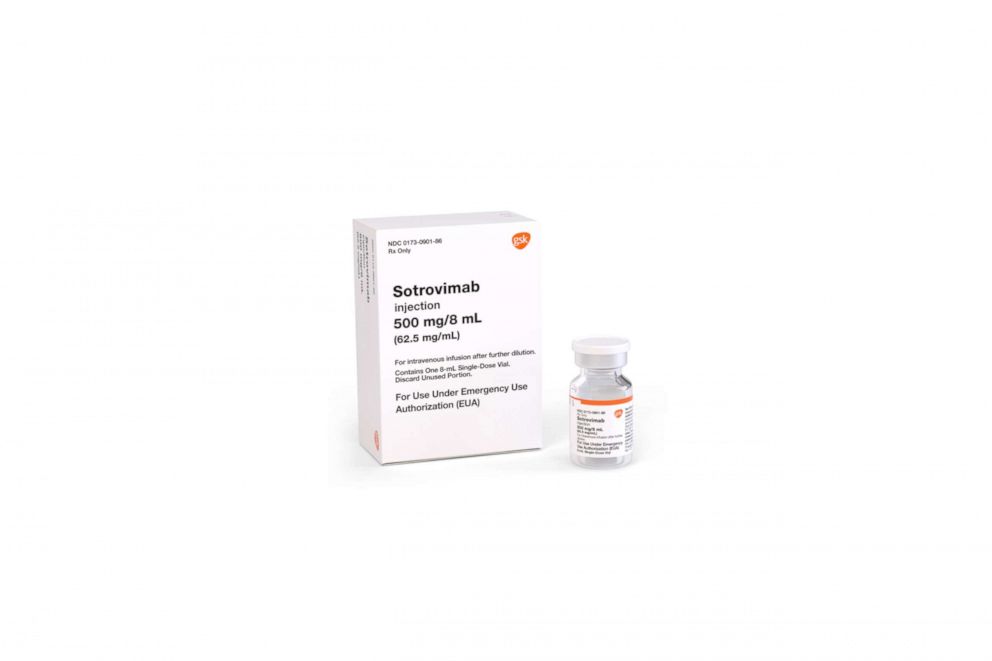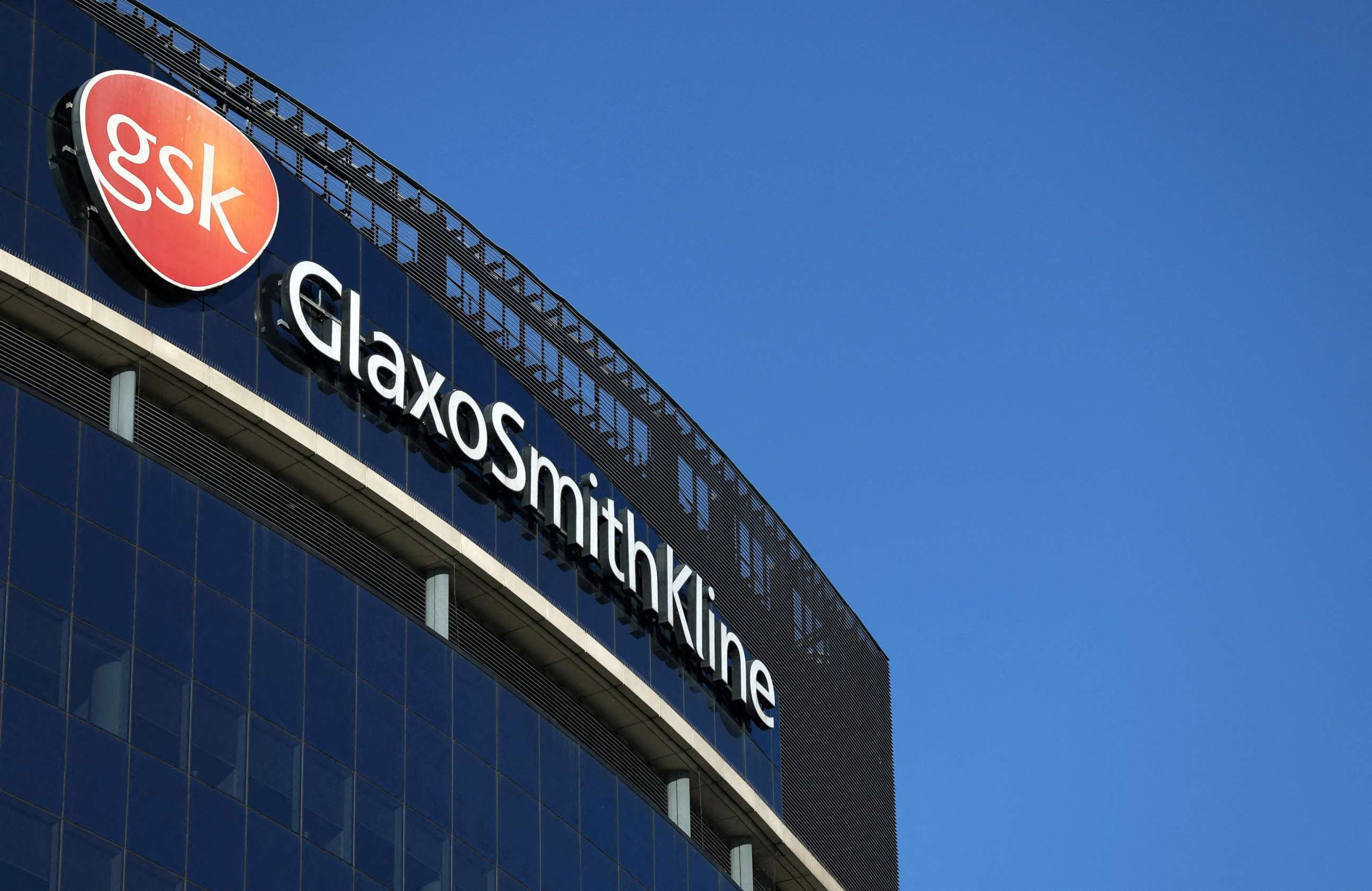Feds pause COVID monoclonal antibody treatment in 8 states over potential failure against BA.2 subvariant
The pause affects Sotrovimab from GlaxoSmithKline.
The federal government is sharply pulling back on one of the monoclonal antibody treatments authorized for COVID-19, pausing its use across eight states out of concerns it will fail against the BA.2 omicron subvariant.
The therapy, called Sotrovimab from GlaxoSmithKline and Vir Biotechnology, is now no longer authorized by the Food and Drug Administration in Connecticut, Maine, Massachusetts, New Hampshire, Rhode Island, Vermont, New Jersey and New York, as well as Puerto Rico and the Virgin Islands, while BA.2 is the prevailing COVID-19 strain, the agency announced Friday.
Distribution of the drug will now be "immediately" paused across those regions, the Department of Health and Human Services said.
In those impacted areas, BA.2 is estimated to account for more than 50% of new cases as of March 19, according to data from the Centers for Disease Control and Prevention. BA.2 has been especially dominant across the Northeast -- a prevalence reflected by the regions where the government is now pulling back Sotrovimab's licensure. The CDC estimates BA.2 accounts for more than a third of new cases nationally.

Monoclonals have become a mainstay for COVID treatment. Their ability to curb hospitalization rates, particularly among unvaccinated, high-risk patients, has made them a key component in President Joe Biden’s COVID-19 plan.
GSK told ABC News it is prepping data on a higher dose of their treatment to see whether it will hold up better against BA.2.
Meanwhile, the FDA said it will continue to monitor the subvariant. Officials could pull even further back on Sotrovimab's authorization as needed.
At this time, other states' shipments will not be impacted. HHS noted Friday that other alternative treatments, like Pfizer and Merck's oral antivirals as well as Eli Lilly's monoclonal antibody therapy, are still expected to hold up against BA.2, with sites still able to continue requesting those orders.

This is not the first time new limits have been placed on a COVID-19 treatment when a new variant of concern begins spreading.
In January, the FDA paused its authorization for two previous monoclonal therapies from Regeneron and Eli Lilly, after both were shown to fail against omicron. The government paused distribution of previous therapies out of efficacy concerns several times in past variant surges.
But this time, it comes as the nation's supply of functional treatments -- especially the free ones -- is already shrinking.
The government has significantly cut back on the amount of viral treatment available to states, as COVID relief funding is stalled in Congress, according to internal documents obtained by ABC News.
Those supply cuts include the remaining monoclonal treatments shown to work against both omicron and the BA.2 subvariant.
Weekly allocations of that treatment, Bebtelovimab from Eli Lilly, is being cut by more than 30% -- from 49,000 to 30,000 doses. Those cuts started Monday and will go through at least the next few weeks' allocations, according to the documents.
The White House has also warned that antiviral pills from Pfizer and Merck could run out by the end of the summer if more orders don't get placed soon.



